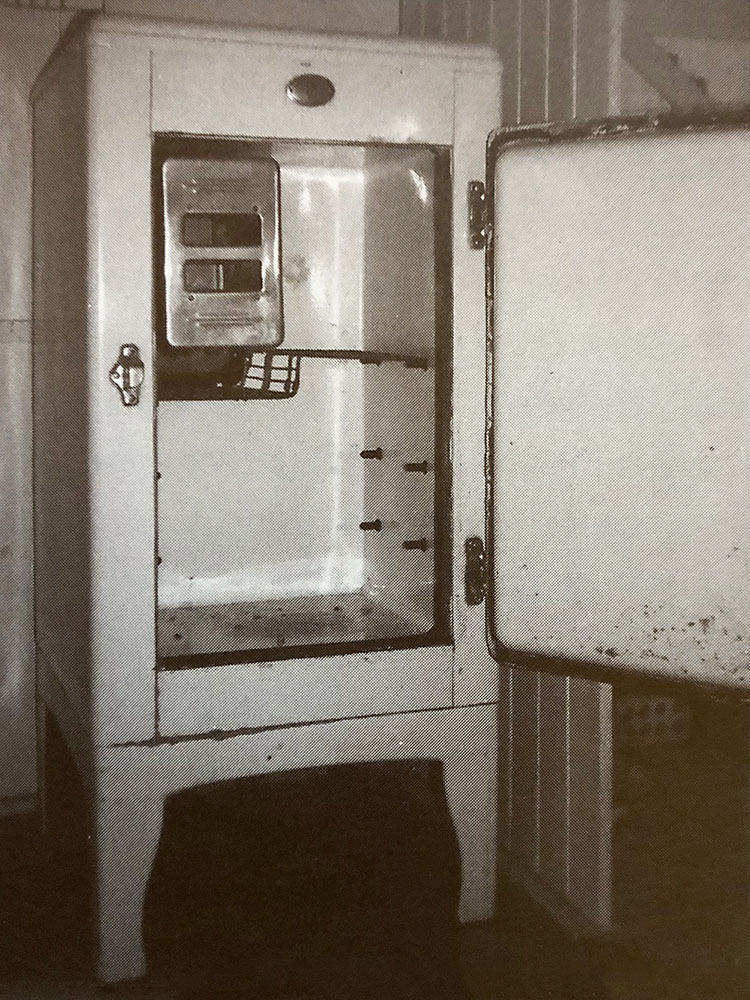History of Logan Village, Yarrabilba & Surrounds – Part Seven
PIONEERING WAYS – Pioneering Women Part 1

The life of the pioneering woman was never easy and for the early settlers of the Logan Village area, it was no different. They endured the isolation and loneliness as they usually lived some distance from the road and their neighbours. Every day their job was to help their husbands with milking and farm jobs as well as tend to their household duties and children – all with no electricity, no means of communicating with the outside world, and no running water, much less hot water on tap or modern amenities, such as washing machines. Hot water was boiled up in kerosene tins (four gallons) and had to be carried to wherever it was needed. Washing was at first boiled in kerosene tins and later in large coppers. Light was provided by kerosene lamps and candles.
Early in marriage some pioneering women were fortunate enough to be able to ride a horse to go visiting but once a baby arrived, they were limited to walking and carrying a child. A few were fortunate enough to be able to drive themselves to the neighbours in a sulky, if and when a suitable horse was available. One lady was known to catch and harness a draught horse, attach the slide and take her three young children with her to round up the cows for milking.
Childbirth was for many women a real trauma, getting to hospital by buggy or sulky – quite a long, slow journey over rough, sometimes boggy roads. One lady, my grandmother Florence Bobermien, gave birth to her first son in a buggy, during a flood at Jimboomba, and her second son on the side
of the road near Flagstone Creek, Beaudesert.
A few of the wives were city girls and it must have been a real culture shock to find themselves out in the bush, having to be entirely self-reliant, making their own bread, soap, clothes and household items, with very little entertainment or diversion. The warmth of the wood stoves and the smell of baking bread always made their homes very inviting places. When women met, there was always an exchange of recipes and patterns.
Some women always excelled in making certain things – one lady made beautiful cakes and another melt-in-the-mouth scones. When Copha came on the market, chocolate crackles were everyone’s favourite.
With the coming of the railway to Logan Village, the train whistle echoed throughout the village once a week in the beginning, then a couple of times a week. Before World War II, the big city department stores sent out their travelling salesmen with samples of materials and this was how the women chose their new clothes, unless they were lucky enough to visit the city
which was a rare occasion. Everything could be bought from the store catalogues which were produced regularly such as Telson and Rawleigh items. Ted Randle from Logan Village sold a lot of the early Radiola battery radios and kerosene Silent Knight refrigerators.
In the thirties as cars became affordable, the roads and communications improved, but even when the family owned a car it was mostly only the men who learned to drive. Ladies weren’t supposed to be able to manage mechanical things.
Marriage was cause enough for women to have to give up their jobs too, and in the Kingston Butter Factory records, mention is made that a lady had to get permission to work after her marriage in 1943.
The war years were hard years for everyone and especially people and farmers on the land throughout the Village. All types of everyday necessities were in short supply or unobtainable. Clothing, shoes and household linen, as well as butter, sugar and tea were all rationed. Older children could qualify for extra coupons for clothing and were measured and/or weighed at the local school to verify their eligibility. Other things such as rice, tinned fruit and chocolates were just unobtainable for several years, thus adding to the burden of housewives. Fortunately, on farms there was always plenty of food even if there was not a lot of variety. Every farm had some fowls and grew vegetables and had a few fruit trees which produced their crops in season. Housewives made their own jams, lemon butter, chutneys and pickles out of any surplus fruit and vegetables.
(Extracts from The History of Boyland Canungra Line Qld).
In The Next Edition – See Part 2 of ‘Pioneering Women’ …
Noeleen Bobermien’s (De Lange) and her 82-year-old father, Graham Bobermien’s recently published book: “A Journey through Logan Village” is available to purchase direct from Author (noeleendl@gmail.com) or from the Logan Village Museum.